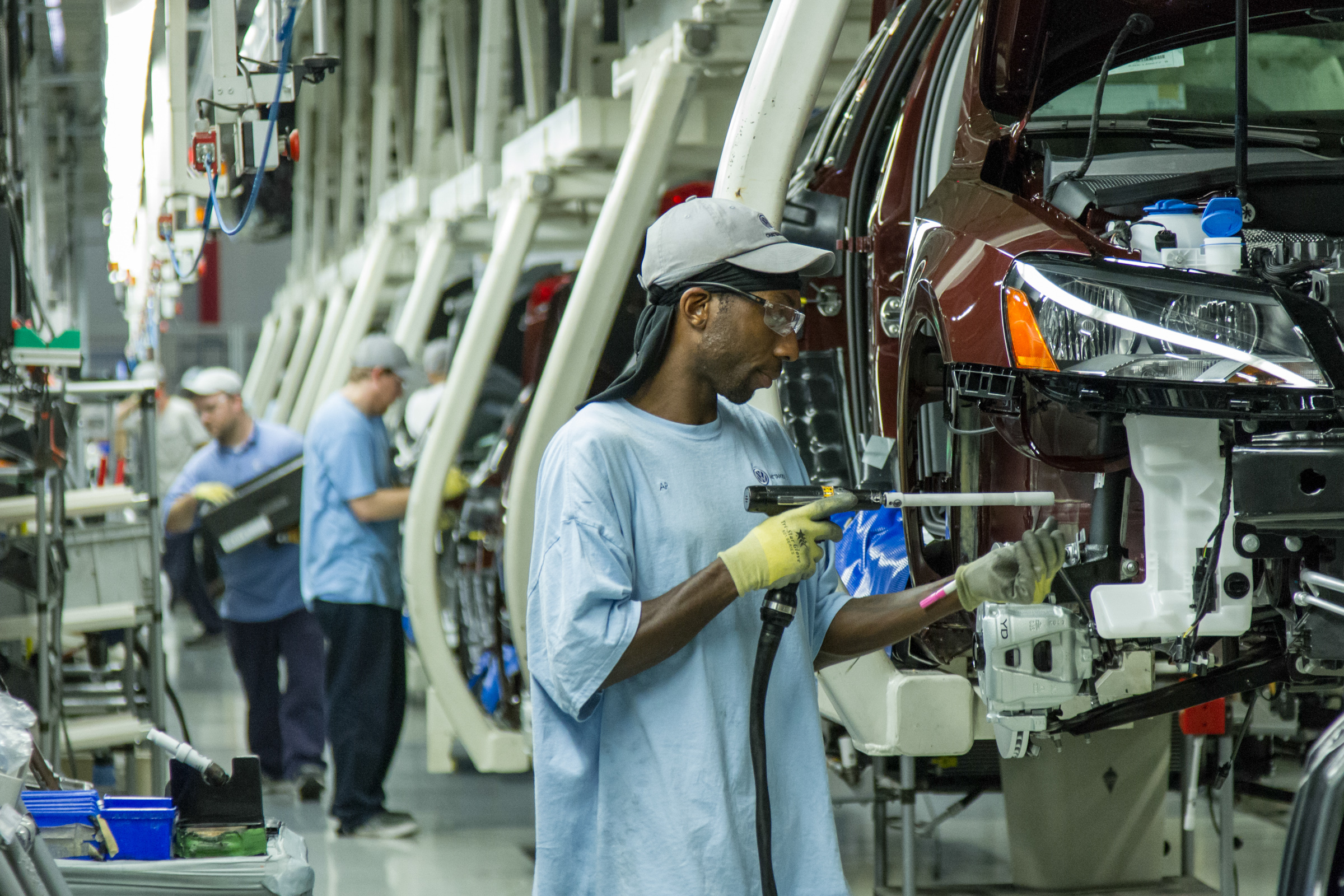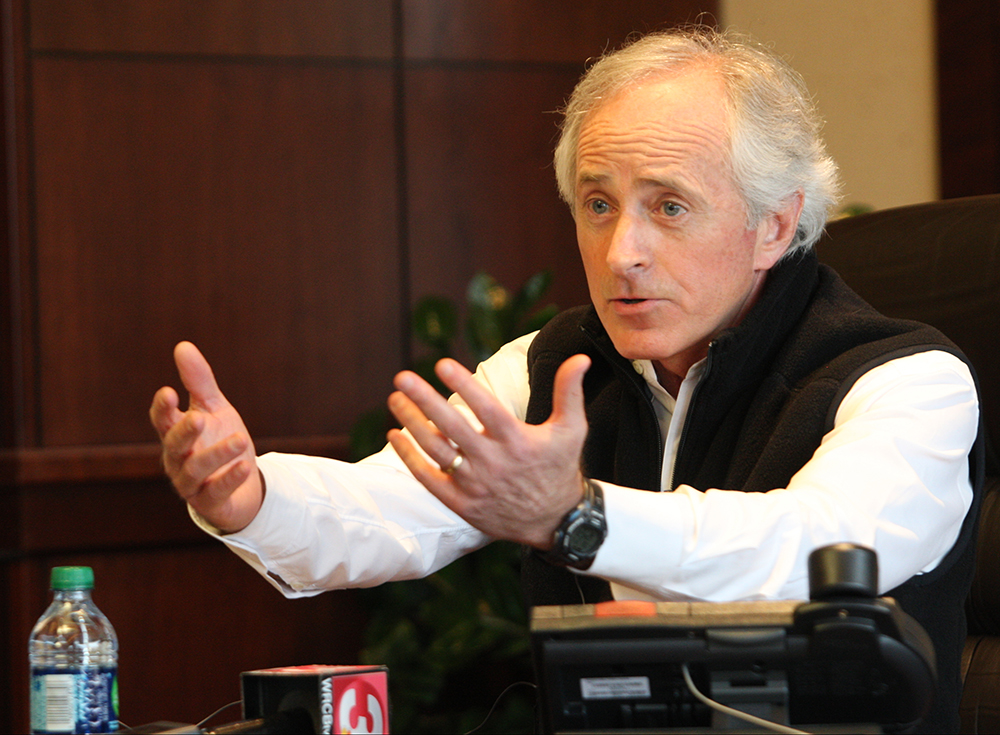UAW DECISIONView an interactive timeline, slideshow and related stories.
Around the dining room table in his Riverview home, U.S. Sen. Bob Corker, R-Tenn., led the pitch to Volkswagen officials in 2008 that helped convince VW to build its $1 billion assembly plant in Chattanooga - the biggest industrial investment ever in the Scenic City.
Corker, a former builder, developer and Chattanooga mayor, said he was so emotion-filled when he learned of Volkswagen's plans to build in his hometown that he was speechless and had to excuse himself from a Senate hearing.
"I knew how dramatic of an impact this would have on so many people in our community," Corker recalled Tuesday.
But what Corker and other state and local officials who negotiated a record $577 million on incentives for Volkswagen didn't expect was for the German auto maker to bring the Detroit-based United Auto Workers to town. Corker said when Tennessee was recruiting Volkswagen as a right-to-work state with limited union presence, VW officials indicated they were not eager for a union presence at their new American plant, even though the company's other plants around the world were unionized.
"They were very clear that they wanted nothing to do whatsoever with the UAW," Corker said during an editorial meeting Tuesday with the Times Free Press.
But five and a half years after breaking ground on the Chattanooga auto plant, nearly 1,500 of the hourly workers who now produce VW Passats in Chattanooga will start voting today to decide if they want to be represented by the United Auto Workers.
UAW President Bob King, who vowed when he was first elected union president in 2010 to organize one of the Southern foreign auto plants, says this week's vote offers workers the chance to work in a new co-determination model and create the first U.S. version of VW's German works council.
King, who is retiring in June, sees this week's vote as the union's best chance to gain a foothold in the traditonally non-union South and to demonstrate what King has touted as a more collaborative and cooperative union model.
UAW organizers collected signatures from what they say were a majority of hourly workers at VW last year in support of the union. King traveled to Germany last fall to help convince members of VW's supervisory board to invite the union into the plant ahead of the unionization vote.
Many of VW workers have been convinced. They say the UAW and the works council it would bring to the plant would help improve productivity and performance.
"Volkswagen will be stronger when they come together with the UAW because that combines not only Volkswagen's history of working with labor but also adds in UAW's experience in working in the U.S. market," said Justin King, a finish line team member in the VW plant.
Lauren Feinauer, an assembly shop quality team member, said workers on the line "see a lot and pay very close attention" to the product and process. "They have a lot of great ideas about how to improve the quality," she said of the hourly workers and their potential involvement in the union-led works council.
Union supporters note that UAW has done well in the South at both Spring Hill, Tenn., where more than 1,800 workers are employed, and in Louisville, where more than 9,000 person are employed, creating an estimated 72,000 spin-off jobs.
But Corker, who negotiated with UAW leaders during the 2008-2009 auto bailout discussions, rejects such claims.
"I don't know anybody could say that Spring Hill has been a successful venture," he said. "In contrast, look at Nissan a couple of counties over. That has operated without the UAW and has been a model plant for the world"
Corker said suppliers "do not want to locate next to the Spring Hill plant. They don't want to be anywhere near that environment."
'The very same people who have created so many issues at Spring Hill and other places are now organizing this place," Corker said. "This is not a new UAW."
The Tennessee senator said he took a day off from Senate hearings to fly back to Chattanooga to let local workers and the community know his concerns about the UAW and its potential negative impact on economic recruitment. Although Corker previously said he would not comment any more ahead of the election, he balked at UAW claims that he was satisfied with the vote and didn't want VW workers to think he in any way supported the union.
UAW Regional Director Gary Casteel, who directs the union's organizing in the South, denounced Corker's trip to Chattanooga.
"It's unfortunate that Bob Corker has been swayed by special interests from outside Tennessee to flip-flop on his position on what's best for Chattanooga's working families," Casteel said.
Corker said the UAW and VW developments are personal to him because of his long involvement in economic development and the recruitment of Volkswagen to Chattanooga.
"If the UAW is successful here, am I in any way going to work any less for the plant here? Absolutely not," Corker said. "But I know it would be a negative for our community."
Contact Dave Flessner at dflessner@timesfreepress.com or at 757-6340.


